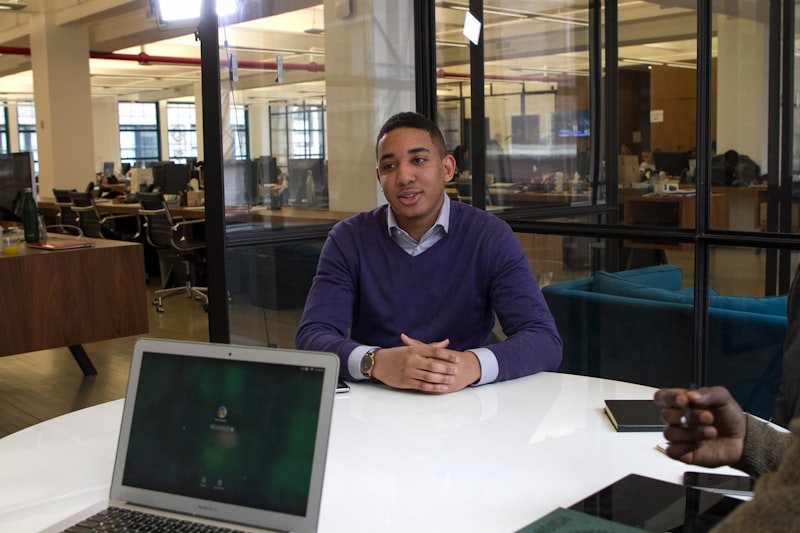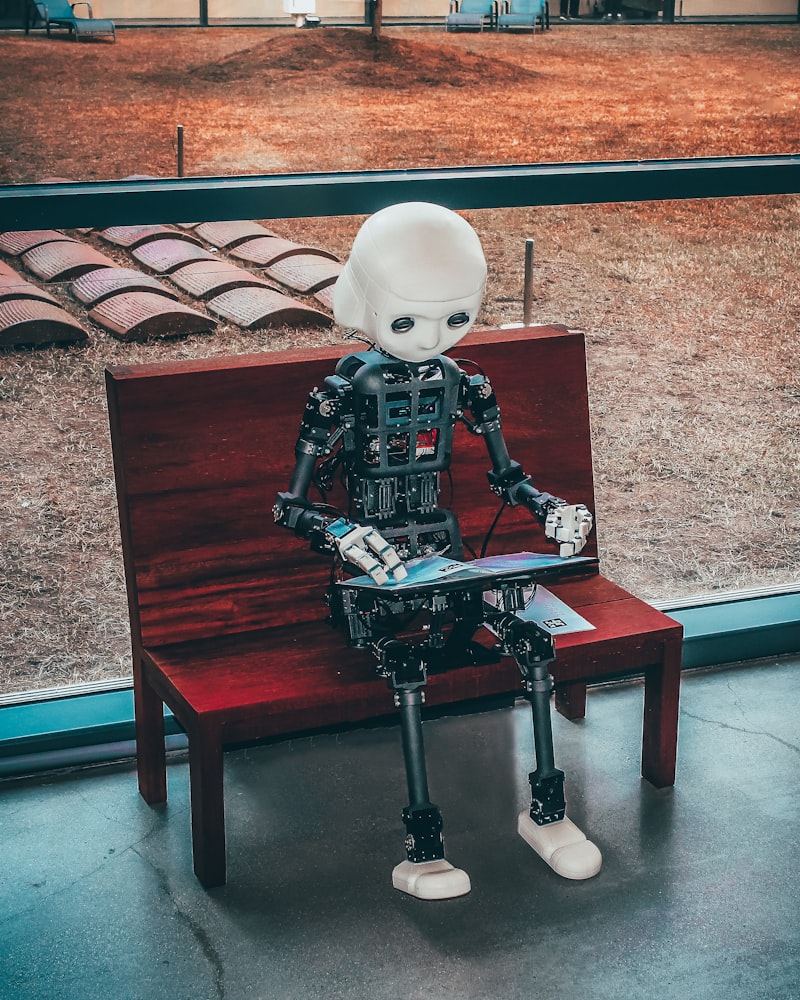AI’s integration into various sectors has both created and transformed job roles. Tasks once done manually are now automated, allowing workers to focus on more strategic, high-value activities. For instance, AI-driven analytics are enabling businesses to make data-driven decisions swiftly, necessitating a shift in skill sets towards data interpretation and strategic planning.
Moreover, AI has sparked the emergence of entirely new job categories. Roles such as AI trainers, data scientists, and automation specialists have become increasingly prevalent. These positions require a deep understanding of AI technologies and an ability to harness its capabilities effectively.
However, the rapid pace of AI adoption also brings challenges. Traditional job roles are being phased out or transformed, demanding that workers continuously upskill or reskill to remain relevant. Adaptability is key; those who embrace AI and invest in learning its applications are more likely to thrive in the evolving job market.
To stay ahead in this AI-driven era, professionals must cultivate a mindset of continuous learning and adaptation. By staying abreast of AI developments, attending workshops, and pursuing certifications in AI-related fields, individuals can enhance their employability and seize emerging job opportunities.
While AI presents disruptive changes to the job market, it also opens doors to innovative roles and career paths. Embracing AI technologies, honing relevant skills, and maintaining a proactive approach to learning are essential strategies for individuals aiming to navigate and succeed in the evolving landscape of job opportunities shaped by AI.
Navigating the AI Revolution: Strategies to Thrive in Shifting Job Markets
Artificial Intelligence (AI) is transforming industries at a rapid pace, reshaping job markets worldwide. As businesses embrace AI technologies to streamline operations and enhance efficiency, the demand for new skills and capabilities is skyrocketing. To thrive in this evolving landscape, professionals need to adopt strategic approaches that harness the power of AI while future-proofing their careers.
One of the key strategies for navigating the AI revolution is continuous learning. Upskilling and reskilling are essential to stay relevant in a job market increasingly influenced by AI-driven automation. By acquiring proficiency in areas such as data analysis, machine learning, and programming languages like Python, individuals can position themselves as valuable assets in AI-powered enterprises.
Adaptability is another crucial factor. As AI automates routine tasks, human roles are evolving towards more strategic and creative endeavors. Professionals who can adapt their skills to complement AI capabilities—such as problem-solving, critical thinking, and emotional intelligence—will be well-positioned for roles that require human judgment and decision-making.
Networking remains a powerful tool in the age of AI. Building relationships with peers, mentors, and industry experts can provide insights into emerging trends and job opportunities within AI-driven sectors. Collaborating on projects and participating in AI-related communities can also enhance visibility and credibility in the field.
Furthermore, embracing innovation and entrepreneurship can open doors to new career pathways. The AI revolution presents opportunities to create groundbreaking solutions and businesses that leverage AI technologies. Entrepreneurs who understand AI’s potential to disrupt markets can carve out niches and drive industry innovation.

Navigating the AI revolution requires proactive strategies centered around continuous learning, adaptability, networking, and entrepreneurial thinking. By embracing these approaches, professionals can not only thrive in shifting job markets but also contribute to shaping the future of AI-enabled industries.
AI and Your Career: Adapting Skills for Tomorrow’s Job Landscape
In today’s rapidly evolving job market, the impact of artificial intelligence (AI) cannot be overstated. As AI technologies continue to advance, they are reshaping industries and redefining the skills needed for success in tomorrow’s workforce. Whether you’re just starting your career or looking to advance in your current role, understanding AI and adapting your skills accordingly is crucial.

One of the key areas where AI is making a significant impact is automation. Tasks that were once performed manually can now be streamlined and optimized through AI-powered automation tools. This shift not only increases efficiency but also requires workers to develop new skills to oversee and manage these technologies effectively.
Analytical thinking and data literacy are becoming increasingly valuable in the age of AI. As machines handle large volumes of data, professionals who can interpret and derive insights from this data are in high demand. Being able to understand and leverage data-driven decision-making processes will be essential across various industries.
Adaptability is another critical skill in the AI-driven job landscape. With technologies evolving at a rapid pace, professionals must be open to learning new tools and methodologies continuously. Those who can quickly adapt to changes and embrace innovation will thrive in environments where AI is prevalent.
Moreover, creativity and problem-solving skills remain indispensable. While AI excels at tasks involving data analysis and pattern recognition, human creativity and intuition are essential for tasks that require empathy, innovation, and complex problem-solving. Jobs that involve strategic planning, customer relations, and creative thinking will continue to rely on human expertise.
Navigating the future job market requires a proactive approach to understanding and leveraging AI. By developing skills in areas such as data literacy, adaptability, and creativity, professionals can position themselves effectively for the opportunities and challenges that AI will bring. Embracing AI as a tool for augmentation rather than replacement can lead to exciting career prospects in tomorrow’s AI-driven world.
Future-Proofing Your Career in the Age of AI: Essential Steps
One crucial step in future-proofing your career is to cultivate a mindset of lifelong learning. Embrace new technologies and seek opportunities to upskill or reskill yourself. Whether it’s mastering data analytics, understanding machine learning algorithms, or improving your digital literacy, staying abreast of technological developments will enhance your relevance in the job market.
Another essential aspect is to cultivate adaptability. The ability to pivot and adapt to changing circumstances is invaluable. AI is not just a technology but a catalyst for change across various sectors. Professionals who can navigate ambiguity and are open to learning new skills will thrive in this transformative era.
Networking remains a cornerstone of career success. Building and maintaining a robust professional network can provide insights into industry trends, job opportunities, and potential collaborations. Platforms like LinkedIn offer avenues to connect with like-minded professionals and stay updated on industry news.

Furthermore, honing your creativity and critical thinking skills will set you apart from automation. While AI excels at repetitive tasks and data processing, human skills such as creativity, empathy, and complex problem-solving are increasingly valued. These skills enable individuals to innovate, envision new possibilities, and drive meaningful change within organizations.
Lastly, embracing a proactive mindset towards career development is key. Stay informed about emerging trends in your industry, anticipate future skill demands, and be prepared to adapt your career trajectory accordingly. By continuously assessing and refining your skills, you’ll position yourself as a proactive player in the age of AI.
From Automation to Opportunity: Harnessing AI for Career Advancement
In today’s fast-paced world, where automation is reshaping industries, harnessing the power of Artificial Intelligence (AI) can be the key to advancing your career. AI isn’t just a buzzword anymore; it’s a transformative force that is creating new opportunities across various sectors.
Imagine AI as your personal career assistant, constantly analyzing data, identifying trends, and suggesting ways to improve your skills or even switch career paths. Just like a coach guiding an athlete, AI can provide personalized recommendations tailored to your career goals.
One of the most exciting aspects of AI in career advancement is its ability to streamline repetitive tasks. Whether you’re in finance, healthcare, or marketing, AI-powered tools can handle mundane tasks like data entry or customer support, allowing you to focus on more strategic initiatives that add value to your role.
Moreover, AI can act as a virtual mentor, offering insights based on vast amounts of data and real-time market trends. It can recommend courses, certifications, or networking opportunities that align with your career aspirations, helping you stay ahead in your field.
Think of AI as a navigational tool in a vast ocean of career possibilities. It not only helps you navigate but also charts new routes you may not have considered before. For instance, AI-driven analytics can highlight emerging job roles or industries that are on the rise, guiding you towards lucrative career paths.
In essence, embracing AI for career advancement isn’t just about adapting to technological change—it’s about seizing opportunities that enhance your professional journey. By leveraging AI’s capabilities to automate routine tasks, gain valuable insights, and explore new career avenues, you can stay agile and competitive in today’s evolving job market.
Ready to take your career to the next level with AI? Explore how this transformative technology can turn automation into opportunities for your professional growth.
This article aims to capture the reader’s interest through engaging paragraphs, a conversational tone, and practical insights into leveraging AI for career advancement.
Job Disruption or Transformation? Making AI Work for Your Career

AI’s impact on employment is undeniable. It has already automated numerous routine tasks, reshaping industries from manufacturing to customer service. However, this disruption isn’t necessarily a negative; rather, it signals a shift towards more meaningful, strategic roles. Tasks that are repetitive or data-driven can now be handled swiftly by AI systems, allowing humans to focus on higher-level decision-making, creativity, and innovation.
Imagine AI as a powerful tool in your professional toolkit, enhancing your efficiency and accuracy. Just as a craftsman uses precision tools to perfect their work, AI enables professionals to streamline processes and achieve results with unprecedented speed. By embracing AI, individuals can adapt more swiftly to industry changes, staying ahead of the curve and carving out new career pathways that blend human expertise with technological efficiency.
But how does one make AI work for their career? It starts with understanding its applications within your field. Whether you’re in healthcare, finance, marketing, or any other sector, AI can offer insights that human analysis alone may overlook. Learning to interpret AI-generated data and incorporating it into decision-making processes can elevate your role and influence within your organization.
Moreover, continuous learning and upskilling are crucial in the AI era. As technology advances, so too must our skills. Investing in AI-related courses, certifications, or workshops can equip you with the knowledge needed to harness its full potential. Adaptability is key; those who embrace AI as a partner rather than a competitor are better positioned to thrive in the evolving job market.
AI’s Influence on Employment: Innovate or Stagnate?
In today’s rapidly evolving technological landscape, AI stands at the forefront of change. Its ability to automate tasks traditionally performed by humans raises questions about the future of employment. While some fear job losses, others see AI as a catalyst for innovation and new opportunities.
AI’s influence on employment is profound and multifaceted. It has streamlined operations in sectors such as manufacturing, logistics, and customer service, boosting efficiency and reducing costs. Tasks that once required human intervention, like data analysis and repetitive workflows, can now be handled swiftly and accurately by AI-powered systems.
However, this advancement comes with challenges. As AI takes on routine tasks, certain jobs may become obsolete, leading to workforce displacement. This shift demands a workforce that can adapt to technological advancements, emphasizing the need for upskilling and reskilling programs to remain competitive in the job market.
On the flip side, AI creates new avenues for employment. Industries investing in AI technology seek skilled professionals capable of developing, managing, and optimizing AI systems. Roles such as AI specialists, data scientists, and machine learning engineers are in high demand, offering lucrative career opportunities for those with the right expertise.
Navigating AI’s impact on employment requires proactive strategies. Businesses must balance automation with workforce development, fostering a symbiotic relationship between AI technology and human capabilities. By integrating AI responsibly, organizations can unlock innovation while supporting job creation and career advancement.
AI’s influence on employment challenges conventional norms while opening doors to unprecedented possibilities. Embracing AI’s potential requires foresight, adaptability, and a commitment to leveraging technology for sustainable growth and human prosperity. As industries evolve, so too must our approach to employment, ensuring that innovation and opportunity go hand in hand in the age of AI.
Frequently Asked Questions
How can individuals upskill to remain competitive in the age of AI
Learn new skills relevant to emerging technologies like AI through courses, workshops, and practical projects. Stay updated with industry trends and certifications to enhance competitiveness.
What strategies can professionals use to future-proof their careers against AI
Discover effective strategies for professionals to future-proof their careers against AI, ensuring resilience and adaptation in the evolving technological landscape.
How is AI affecting job opportunities globally
Learn how AI impacts global job opportunities, from automation’s role in shifting industries to new roles emerging in AI development and data science.
Where can I find resources to learn more about AI and its impact on jobs
Discover resources to deepen your understanding of AI’s impact on jobs through reputable online platforms, educational institutions, and industry reports. Explore courses on platforms like Coursera and edX, read articles from MIT Technology Review, and consult reports from the World Economic Forum.
What are the key industries where AI is creating new jobs
Discover the key industries where AI is fostering new job opportunities. Explore how artificial intelligence is reshaping sectors such as healthcare, finance, automotive, and technology, opening doors to innovative roles and career paths.


